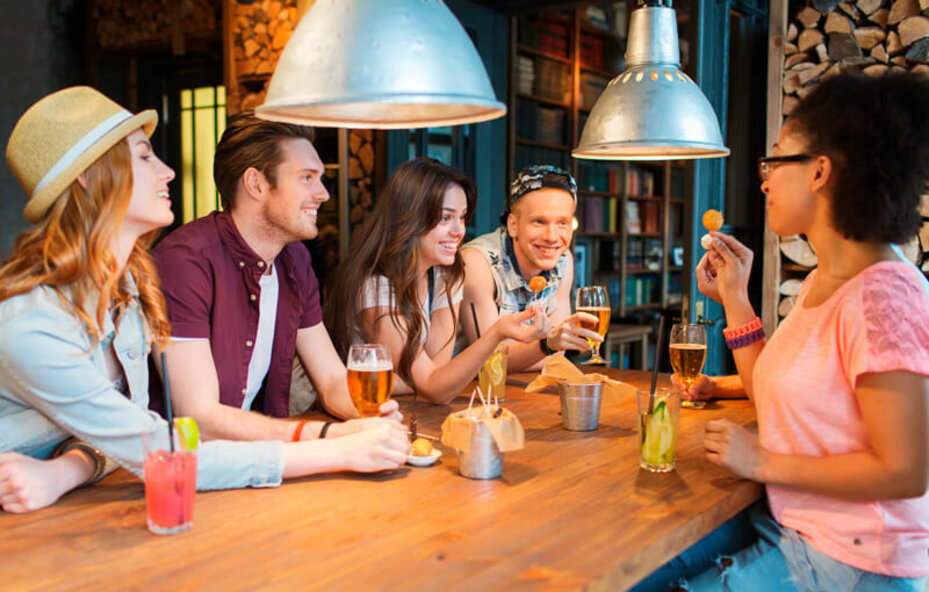Becoming A Young Adult: Alcohol, Parties, And Type 1 Diabetes
The night is young (and so are you). It’s fresher, or orientation week of university, and it’s kicking off with an all-night pub outing. It doesn’t take much imagination to figure out that this is going to involve a lot of alcohol. However, you’re living with type 1 diabetes, and you also want to be a responsible young adult. Before you embark on a big night out, what do you need to know about alcohol, recreational drugs, and living with type 1 diabetes?
A Cocktail Of Alcohol And Type 1 Diabetes
A classy glass of wine every now and then may not do you any long-lasting harm. However, due to increased independence, the tendency to experiment, and easier access to alcohol,1 young adulthood often doesn’t stop at just one classy glass of wine.
The relationship between alcohol and blood glucose (BG) levels is an interesting one. Research suggests that moderate alcohol consumption can actually improve your insulin sensitivity, as a young adult living with type 1 diabetes. However, as with many relationships in this stage of life, it gets a little complicated. Studies have also found that those who drink heavily experience increased insulin resistance,1 which does no favours for your BG management. In addition to this, higher alcohol consumption is associated with reduced diabetes self-care, such as not testing your BG or HbA1c, or taking your medications.1
Research has demonstrated that alcohol consumption can increase your risk of a hypoglycaemic (hypo) episode.1-3 There is some suggestion that this drop in BG levels can be delayed by up to 24 hours after you’ve gulped down your last drink,3 potentially making it more difficult to manage that hypo. Higher alcohol consumption has also been linked with an increased likelihood of experiencing diabetic ketoacidosis.1
Little Colourful Pills (Not Candy)
There’s currently not a lot of research on the direct impact of recreational drugs on type 1 diabetes.3,4 However, the general effects of party drugs can impair your ability to manage your diabetes. This can include:3,4
- Impairing your ability to recognise a hypo.
- Taking your energy and glucose levels on a rollercoaster.
- Causing you to lose track of time and forget to undertake your usual diabetes care routine, such as taking insulin or eating.
- Causing a mood crash, known as a come-down, days later, which can reduce your likelihood of optimal diabetes self-care.
If you have decided to engage in recreational or party drugs, speak to your diabetes healthcare team. Although they may not support your choices, they can provide you with information about how to manage your diabetes as best as possible during these times.
9 Tips On Getting Home Safely After A Big Night Out
Whether you like to indulge in an after-work tipple or two, or regularly spend your weekends in a haze, there are some steps you can take to ensure you make it home in one piece:2,3
- Before leaving the house, make sure you have all your essential diabetes supplies in your bag. This includes your glucose meter, test strips, insulin, extra tape, lancets and a spare battery cap of your Medtronic insulin pump.
- Educate your party-going friends on how to recognise and treat a hypo if you have one. Remember, some hypo symptoms can mimic those of someone who’s had one too many drinks. These can include confusion, irritability and anxiety, or light-headedness.
- Always eat some carbohydrates before drinking alcohol.
- Keep a close eye on your glucose levels throughout the party. Dancing and even bouncing from pub to pub are forms of exercise and can have surprising effects on your glucose levels.
- Stick to diet, low-sugar mixers where possible. If you have generous friends who like to shout rounds, remind them of this.
- Check your BG before crashing into bed at the end of the night, and if your reading is either normal or low, treat it before going to sleep.
- Keep hydrated with water, especially when you get home and when you wake up the next day.
- Remember that a hypo can feel like a hangover, so watch your BG carefully the following day.
- Keep your test kit and hypo treatments by your bedside so they’re within easy reach if you need them the next morning.
Final Thoughts
Parties can be fun, but you want to live to party another day. Making wise choices before, during, and after a big night out at this stage of life can benefit you into your geriatric years. If you’re not sure what these wise choices might involve, speak to your diabetes healthcare team about strategies to keep you maximum safe while also giving you maximum fun.
References
- White ND. Alcohol Use in Young Adults With Type 1 Diabetes Mellitus. Am J Lifestyle Med. 2017;11(6):433-435.
- Diabetes UK. Type 1 Diabetes and Drinking. https://www.diabetes.org.uk/. 2021. Available at: https://www.diabetes.org.uk/guide-to-diabetes/young-adults/type-1-drinking. (Accessed July 2022).
- NHS. Alcohol and Drugs. https://www.nhs.uk/. 2021. Available at: https://www.nhs.uk/conditions/type-1-diabetes/living-with-type-1-diabetes/alcohol-and-drugs/. (Accessed July 2022).
- Diabetes UK. Recreational Drugs and Diabetes. https://www.diabetes.org.uk/. 2021. Available at: https://www.diabetes.org.uk/guide-to-diabetes/young-adults/drugs. (Accessed July 2022).
